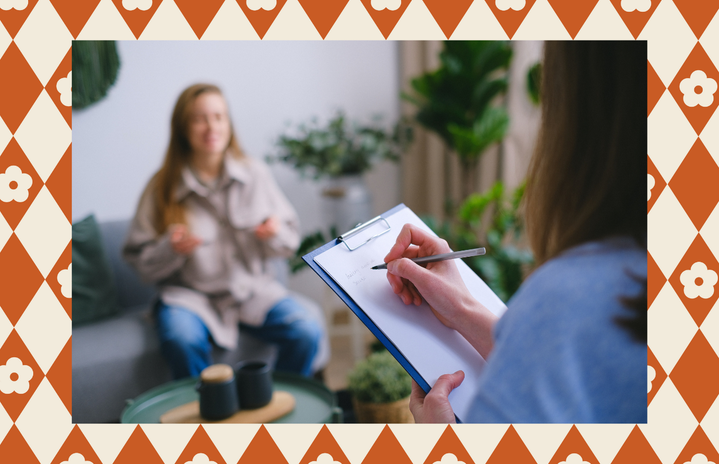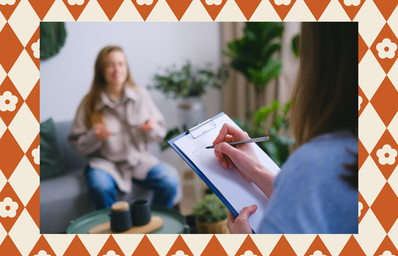Finding a therapist who’s right for you can be really challenging. There are so many aspects to consider, such as insurance/payment options, locations, how often to schedule sessions, as well as specific diagnoses and reasons for going. In addition, you should feel a personal connection to your therapist. This can take time, so it can be helpful to ask yourself questions during your initial sessions.
Finding a therapist is a very personal and subjective choice, so I would recommend asking yourself other questions along with my ideas. These are 10 questions that have been helpful for me in the past:
Do you notice yourself holding back thoughts or questions?
If you find yourself dismissing thoughts during a session, consider possible reasons for this. Is this something you do when speaking to anyone? Is there a specific topic or communication style that motivates you to do this? Is there something distracting you from your thoughts? This could be something to bring up with your therapist; they might share methods to become more comfortable discussing your thoughts.
Do you feel that your therapist understands you and what you discuss?
It can be easier to feel comfortable around a therapist who shares similar characteristics to you. These could be demographic or personal history-related. To find this information, you can check their bio for personal info or areas they specialize in.
Do you feel that your personality aligns with your therapist’s?
One area that might help you feel a connection to your therapist is based on your personality. If you feel you can find common ground in initial sessions, you will be more likely to develop a deeper connection and discuss more of your concerns later on. If you feel that there is a barrier based on differing personalities or communication styles, it might be more difficult to be open around them.
Does your therapist ask you relevant follow-up questions?
Does your therapist seem present and understanding of what you’re discussing? Does your therapist ask clarifying/follow-up questions while you’re talking? Do their questions seek to dig deeper/clarify, or are they unrelated to the topic? Do you feel that your therapist takes you seriously? Do you think that your therapist seems to have an unrelated agenda for the session? Finally, do you fully explore one topic during a session or often switch to unrelated topics? Try to notice if their questions seek to explore different aspects of the same topic, or are unrelated.
Does your therapist provide you with multiple, relevant resources?
Does your therapist provide you with resources outside of sessions, such as worksheets or techniques? Do they provide you with alternate options if the previous resources haven’t been helpful? Do you feel that they have an agenda/quota to give unrelated resources? Overall, you should feel that the resources they provide are relevant to what you discussed.
How does your therapist handle the discussion of difficult subjects?
When discussing topics that are hard for you to talk about, what does your therapist seem to communicate? Do you feel that they want to challenge you in order to fully understand your reaction? Or do you feel that they are pushing you beyond what you can handle? On the other hand, do they simply move past topics that are difficult for you? In this situation, you should feel comfortable around your therapist. They should challenge and validate you enough to open up, but not so much that you feel unstable.
How does your therapist validate your thoughts or concerns?
When you feel confused or unconfident, how does your therapist validate you? Do they reassure you that your feelings are real? Do they ask you to look for evidence to support your thoughts? Do they ask you to think positively towards yourself, such as positive past choices or other things you like about yourself? Or do they dismiss your thoughts?
How often do you think about therapy outside of sessions?
How often do you think about what your therapist has previously said? When you do think about previous sessions, is it in a stressed or confused way? Or are you reminded of helpful information from previous sessions?
How do you generally feel during and after therapy?
During therapy, do you feel engaged or do sessions seem to drag on for a long time? Right after you leave, do you feel confused or that you were unable to make your thoughts heard? Do you feel energized or that you found a new technique to improve? Aside from your feelings over the topics that you discussed, do you generally feel better or worse?
Do you find therapy helpful on a regular basis or when you have specific concerns?
Do you find therapy helpful when you want to discuss a specific topic? Do you find therapy helpful when you are just going for a regularly-scheduled session? If you have nothing specific to discuss, how does your therapist begin the session? Do they discuss something you mentioned previously or about your feelings on that day?
Although there are many considerations to choosing a therapist, your comfort level is very important. Overall, you should feel comfortable enough to open up to your therapist. If you find yourself questioning whether your therapist is right for you, try discussing your reasoning with them. Depending on how they handle it, you could develop a clearer method of communication. It definitely takes time to find a rapport after a few initial sessions. However, your mental health is very important, so don’t feel bad if you decide to switch to a different therapist. It can take time to determine what you want, so be patient with yourself.


